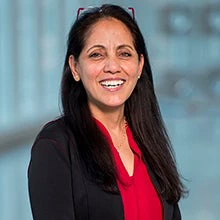
Malnutrition happens early in life, and we have a critical, 1,000-day window of opportunity between the time before birth, (what we call pre-pregnancy) until the age of two. This is a special time when we can make a huge difference in a child’s life. If we miss that opportunity, we miss an entire generation because the damage that happens in the early months is irreversible. Such damage affects not just the child’s ability to learn, but also his or her ability to become a fully capable and productive citizen.
We know this works. For example, a study of Guatemalan children who some 30 years ago went through an early nutrition program before the age of 3 are today earning 46 percent more than people who, as children, did not go through a similar program. The real impact only happens if we intervene before age three. Similar efforts to reach children after the age of three did not show the same benefits.
For a child to survive and thrive, a mother needs to breastfeed. But to do that, in many places we need health programs that support breastfeeding – to get the right kind of advice to new mothers. Labor laws and social protection programs can help make this happen.
What is our role in early childhood nutrition? As the World Bank has done for many years, we continue to work with Health Ministries around the world. But solving the nutrition challenges of tomorrow means taking a coordinated approach – incorporating transportation, agriculture, gender, water, for example.
We know what to do to address malnutrition; we know we need to act urgently in the countries with the highest burden, and we know what it will cost (download report). The need to act is imperative so nutrition no longer remains the forgotten MDG --- the real face of poverty".
These issues will be on the table this morning in New York, where US Secretary of State Hillary Clinton and Micheál Martin, Minister for Foreign Affairs of Ireland will lead a high-level meeting on international partnerships to reduce child undernutrition. The meeting is intended to galvanize investment in the critical 1,000-day window. Let’s hope all partners—governments, multilaterals, civil society groups and the private sector—leave New York this week with renewed will to fight for healthier kids.
Read the UN Secretary-General's statement before the 1,000 Days high-level meeting.
Read the Joint Donor Statement: 1,000 Days: Change a Life, Change the Future.


Join the Conversation